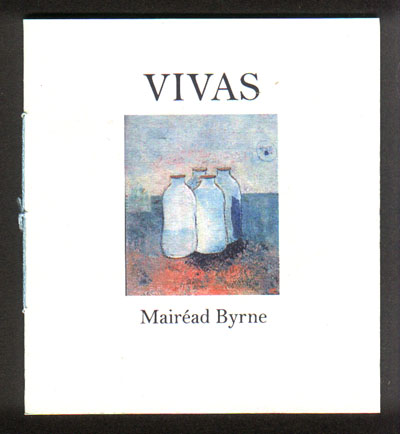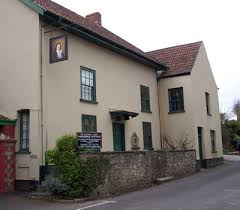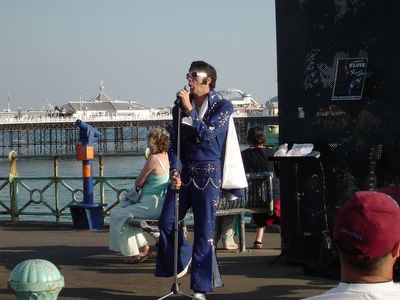
Jez and I went to see The Dandy Warhols at Rock City, I guess it was maybe a couple of years ago. Like loads of people we liked “Bohemian Like You”, even though it was the track on a TV commercial, and the LP it came from, “Thirteen Tales from Urban Bohemia”, was (and still is) pretty good. It’s the only time I’ve ever walked out of a gig at Rock City. (I’ve since walked out of one at The Rescue Rooms, but this was my first ever let your feet do the talking….). God, they were so up themselves. They managed to play all their best tunes inside the first half hour or so, maybe even sooner, and they were really good, but then they descended into, as far as I can recall, self-indulgent long-winded twaddle. It just got boring. So we left. I heard later they’re renowned for playing long sets. "Renowned" is not always a compliment.
The Brian Jonestown Massacre are a different kettle of fish. They’re "renowned" (or were, when they were around) for playing sets that would descend into band brawls, abuse of the audience, and general mayhem. I have a dozen or so songs by them, and I really like them. But they’re not famous, and The Dandy Warhols are.
Last night
Mr. Belbin and I went to see “Dig”, a documentary movie that charts the relationship between the two bands. They were big buddies back when they started out. Their respective leaders, Courtney Taylor of The Dandys, and Anton Newcombe of BMJ, each thought the other great songwriters and potential stars. The mutual love and respect between the bands was palpable. There's footage in the film of Taylor on stage singing with the BMJ. But Newcombe appears to be one of the most neurotic and self-destructive of lost souls; Taylor, on the other hand, is almost alarmingly sane and together.
The careers of the two bands reflect these two personalities. The Dandys get down and work hard and concentrate and, after a while, they make it big. They may not be great, but they buckle down and do the business. The BMJ, on the other hand, fight and break up, and brawl, and get back together, and brawl again, and while the Dandys play to bigger and bigger audiences around the world, and one of their songs is the soundtrack of a cellphone commercial, The BMJ play to ten people in the back of nowhere, literally.
“Dig” follows all this, over a period of seven or eight years. It’s a pretty remarkable thing to do, to follow two unknown bands like that, and then one of them makes it big, and the other falls apart in alarming fashion. And alarming it is – Newcombe is amazing. At one point he kicks an audience member in the head, he’s always storming around like a lunatic dictator, thinks he’s a genius, which he might be but probably isn’t, and it’s all hugely entertaining. His band members do their bit, too. Of course, they take loads of drugs, which doesn’t help them much. Everything revolves around Newcombe and his manic personality. Late on in the movie, they’re filming a (cheap) video on a hilltop, and everyone is dressed in white, and Miranda Lee Richards, who's with the band at this time, says that someone stopped by in a car while they were filming and asked her if they were making a video or are they a cult, and she says with only a hint of irony she had to think about it, because she wasn’t sure.

Courtney Taylor and The Dandy Warhols actually come across as articulate and likeable in a harmless kind of a way. That kind of surprised me, but so it goes. They describe themselves as a lucky band, unlike The BMJ. The chasm between the two is shown glaringly when they're both busted for drugs. The BMJ are driving through Georgia, USA, touring, and are pulled over by the police. Newcombe invites the cops to search the vehicle, as if they have nothing to hide, and their stash is found. Tour ends, band fragments, it’s a shambles. The Dandy Warhols are in France, and are shown being lectured by a French customs official to the effect that if they are caught again they’ll be in big trouble. They’re fined the monetary equivalent of two Dandy Warhol tee-shirts and allowed to keep the dope. And to add to the mayhem, Newcombe decides somewhere along the line that the Dandys have sold out, and starts dissing them in public, and a kind of rivalry kicks in which is all pretty much in one man’s head.
This is such a cool film. I think it’s been around a while, but it's only just got into the local independent movie theatre here this week. And if anybody out there has any Brian Jonestown Massacre stuff they can let me have copies of, then please let me know. I’m sure I’ll have something to offer by way of return. Or I could publish your poems!! (This last comment is a joke in poor taste.)

 This is true of both Pavese’s poetry and his fiction. Indeed, the line between the two is a blurred one. Many of Pavese’s poems read like stories or novels in miniature. Pavese referred to them as his “poem-stories”. In the era of Mussolini, he wrote poetry about the outcasts of society he saw around him on the streets of Turin and the surrounding countryside, the voiceless who would never fit into the clean, homogenised world of Fascism: drunkards, the unemployed and homeless, drifters, prostitutes, ex-cons, toothless men dreaming of their youth. He was influenced by the realism of the American authors he translated extensively, writing in a very different tradition from his Italian contemporaries such as Montale and Quasimodo. Although Pavese claimed to be apolitical, saying that politics was for fools, the subject matter of his poetry couldn’t help but be a protest against Fascism. Take this from “Idleness”:
This is true of both Pavese’s poetry and his fiction. Indeed, the line between the two is a blurred one. Many of Pavese’s poems read like stories or novels in miniature. Pavese referred to them as his “poem-stories”. In the era of Mussolini, he wrote poetry about the outcasts of society he saw around him on the streets of Turin and the surrounding countryside, the voiceless who would never fit into the clean, homogenised world of Fascism: drunkards, the unemployed and homeless, drifters, prostitutes, ex-cons, toothless men dreaming of their youth. He was influenced by the realism of the American authors he translated extensively, writing in a very different tradition from his Italian contemporaries such as Montale and Quasimodo. Although Pavese claimed to be apolitical, saying that politics was for fools, the subject matter of his poetry couldn’t help but be a protest against Fascism. Take this from “Idleness”:

 ‘How promising’, I thought, and ‘What a fab cover,’ and ‘Mr. Mangeot is certainly a very fine specimen of a poet, judging by his picture.’ Inside, I was greeted by tasteful typography, and many recipes for cocktails. I went back to the rear cover, where George Szirtes is quoted: “There is an element of Raymond Carver about these poems” Gosh, that’s even better, as I really admire Raymond Carver. Also, “His poetry shakes the ground, as only good poetry does.” (R.V. Bailey, of whom I have no knowledge, sadly. Unless it is Rosie Bailey, with another hat on, which conceal her earplugs.)
‘How promising’, I thought, and ‘What a fab cover,’ and ‘Mr. Mangeot is certainly a very fine specimen of a poet, judging by his picture.’ Inside, I was greeted by tasteful typography, and many recipes for cocktails. I went back to the rear cover, where George Szirtes is quoted: “There is an element of Raymond Carver about these poems” Gosh, that’s even better, as I really admire Raymond Carver. Also, “His poetry shakes the ground, as only good poetry does.” (R.V. Bailey, of whom I have no knowledge, sadly. Unless it is Rosie Bailey, with another hat on, which conceal her earplugs.) Tantalising, enchanting and strangely addictive might describe the best of Lisa Samuel’s "Paradise For Everyone", a tastefully produced book from Shearsman. Reading Samuels is a little like chasing a phantom lover through a maze. Each time you turn a corner she is turning the next. You are convinced that if you could catch her you would finally understand the great secret of the universe. Although you know that this is impossible, you keep chasing, desire intensified by each glimpse of her you have. Paradise promised is always just out of reach.
Tantalising, enchanting and strangely addictive might describe the best of Lisa Samuel’s "Paradise For Everyone", a tastefully produced book from Shearsman. Reading Samuels is a little like chasing a phantom lover through a maze. Each time you turn a corner she is turning the next. You are convinced that if you could catch her you would finally understand the great secret of the universe. Although you know that this is impossible, you keep chasing, desire intensified by each glimpse of her you have. Paradise promised is always just out of reach.


 I've known Derrick Woolf and Tilla Brading for I don't know how many years. Quite a few. They have published my reviews and my poetry in
I've known Derrick Woolf and Tilla Brading for I don't know how many years. Quite a few. They have published my reviews and my poetry in 
 Jez and I went to see The Dandy Warhols at Rock City, I guess it was maybe a couple of years ago. Like loads of people we liked “Bohemian Like You”, even though it was the track on a TV commercial, and the LP it came from, “Thirteen Tales from Urban Bohemia”, was (and still is) pretty good. It’s the only time I’ve ever walked out of a gig at Rock City. (I’ve since walked out of one at The Rescue Rooms, but this was my first ever let your feet do the talking….). God, they were so up themselves. They managed to play all their best tunes inside the first half hour or so, maybe even sooner, and they were really good, but then they descended into, as far as I can recall, self-indulgent long-winded twaddle. It just got boring. So we left. I heard later they’re renowned for playing long sets. "Renowned" is not always a compliment.
Jez and I went to see The Dandy Warhols at Rock City, I guess it was maybe a couple of years ago. Like loads of people we liked “Bohemian Like You”, even though it was the track on a TV commercial, and the LP it came from, “Thirteen Tales from Urban Bohemia”, was (and still is) pretty good. It’s the only time I’ve ever walked out of a gig at Rock City. (I’ve since walked out of one at The Rescue Rooms, but this was my first ever let your feet do the talking….). God, they were so up themselves. They managed to play all their best tunes inside the first half hour or so, maybe even sooner, and they were really good, but then they descended into, as far as I can recall, self-indulgent long-winded twaddle. It just got boring. So we left. I heard later they’re renowned for playing long sets. "Renowned" is not always a compliment. Courtney Taylor and The Dandy Warhols actually come across as articulate and likeable in a harmless kind of a way. That kind of surprised me, but so it goes. They describe themselves as a lucky band, unlike The BMJ. The chasm between the two is shown glaringly when they're both busted for drugs. The BMJ are driving through Georgia, USA, touring, and are pulled over by the police. Newcombe invites the cops to search the vehicle, as if they have nothing to hide, and their stash is found. Tour ends, band fragments, it’s a shambles. The Dandy Warhols are in France, and are shown being lectured by a French customs official to the effect that if they are caught again they’ll be in big trouble. They’re fined the monetary equivalent of two Dandy Warhol tee-shirts and allowed to keep the dope. And to add to the mayhem, Newcombe decides somewhere along the line that the Dandys have sold out, and starts dissing them in public, and a kind of rivalry kicks in which is all pretty much in one man’s head.
Courtney Taylor and The Dandy Warhols actually come across as articulate and likeable in a harmless kind of a way. That kind of surprised me, but so it goes. They describe themselves as a lucky band, unlike The BMJ. The chasm between the two is shown glaringly when they're both busted for drugs. The BMJ are driving through Georgia, USA, touring, and are pulled over by the police. Newcombe invites the cops to search the vehicle, as if they have nothing to hide, and their stash is found. Tour ends, band fragments, it’s a shambles. The Dandy Warhols are in France, and are shown being lectured by a French customs official to the effect that if they are caught again they’ll be in big trouble. They’re fined the monetary equivalent of two Dandy Warhol tee-shirts and allowed to keep the dope. And to add to the mayhem, Newcombe decides somewhere along the line that the Dandys have sold out, and starts dissing them in public, and a kind of rivalry kicks in which is all pretty much in one man’s head.
 "Grit" by
"Grit" by 








